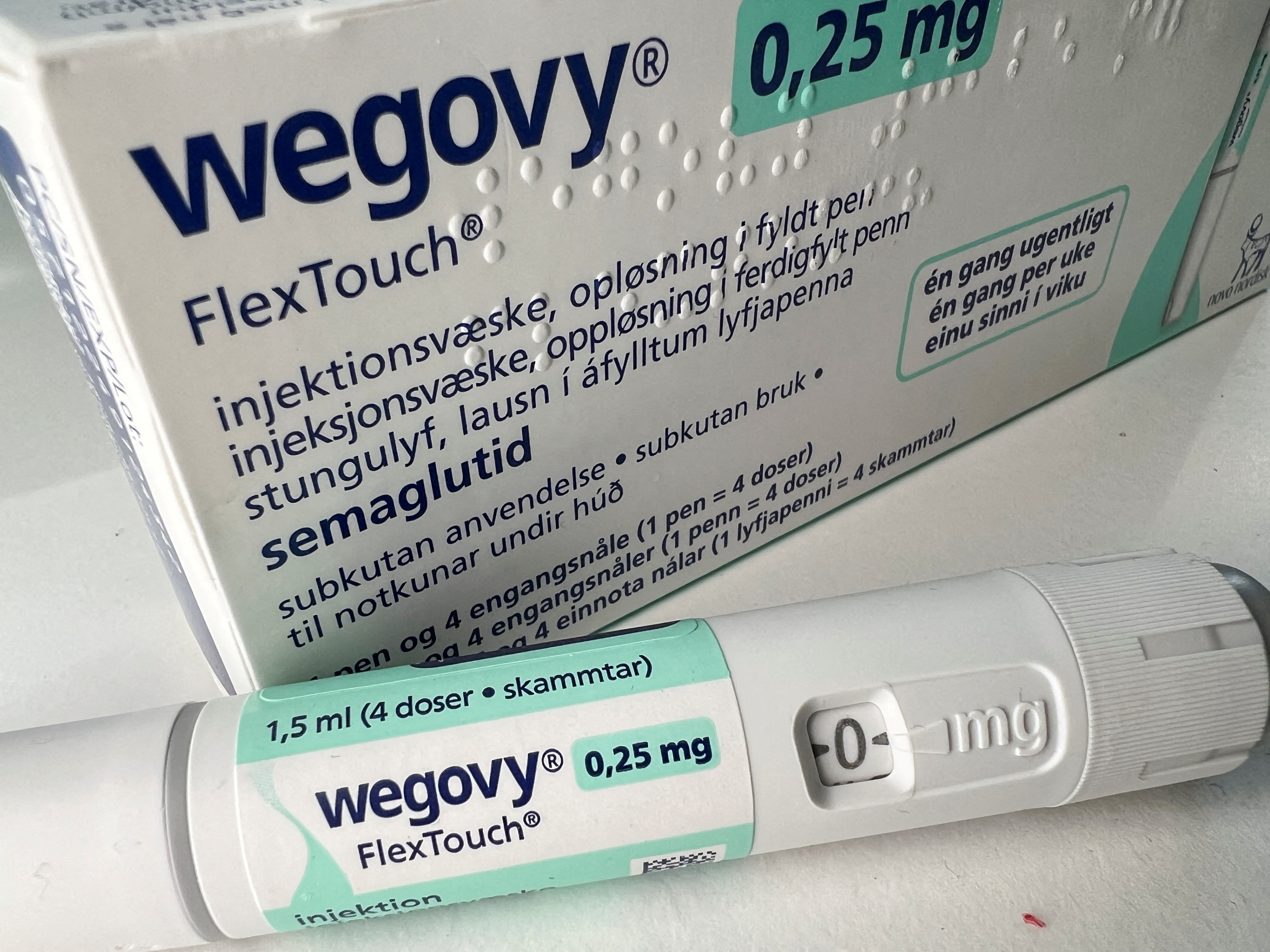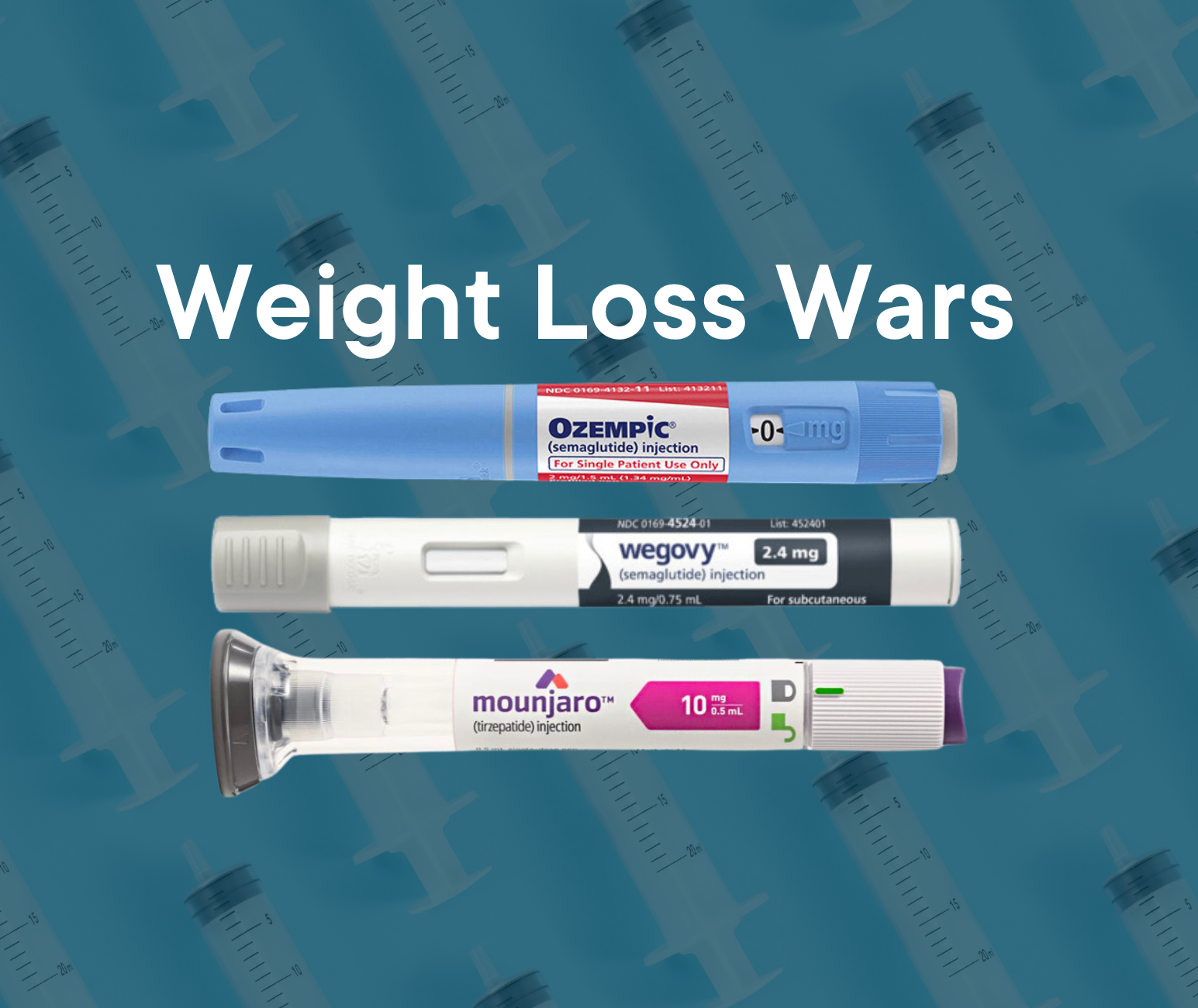The Head of Novo Nordisk India Sets Sights on 2026 Launch of Wegovy Obesity Drug; The Growing Obesity Drug Market With A $200 Billion Potential
The demand for obesity drugs has seen an unprecedented surge, setting the stage for substantial growth in this sector. Medical professionals now have a deeper understanding of obesity's root causes and the critical importance of its treatment, particularly in preventing associated illnesses like heart disease. This newfound awareness has heightened medical interest and fueled consumer demand, pushing a new class of appetite-suppressing drugs beyond initial predictions. With the obesity drug market poised to reach a staggering $200 billion, pharma companies are now gearing up to get their share of the pie.

Novo Nordisk is gearing up to introduce its highly successful weight-loss medication, Wegovy, to the Indian market by 2026; the strategic move follows the acquisition of necessary regulatory approvals and a comprehensive plan to ensure an ample supply to meet anticipated demand, as per company officials.
Novo Nordisk’s Managing Director in India, Vikrant Shrotriya, expressed optimism about the prospects for Wegovy in the country.
He remarked, “I believe there will be a considerable number of patients and physicians interested in this therapeutic area. It will revolutionize healthcare by expanding the horizons beyond alternative treatments and bariatric surgery, which were the only options until now.”
However, at the same time, Shrotriya issued a stern warning to potential patients, advising them against purchasing counterfeit Wegovy, emphasizing potential safety concerns as illegal counterfeit versions of Wegovy have already surfaced and are being distributed via online channels.
He stated, “They should not take it; it is not licensed. Moreover, for most of these products, we lack information regarding the cold chain and transportation insurance.”
However, despite holding the patent for Wegovy’s active ingredient, semaglutide, in India, Novo Nordisk has not pursued legal action against counterfeiters, primarily due to the challenges in tracking them down; Shrotriya added that the company had not identified any major syndicates involved in the illegal distribution of the drug in India.

Regarding the pricing of Wegovy in India, Shrotriya refrained from providing specifics, as he explained that it would depend on the ecosystem prevailing in 2026.
However, he did emphasize the company’s commitment to pricing the drug to strike a balance between justifying innovation and ensuring accessibility for Indian patients; notably, in the United States, Wegovy costs over $1300 for a monthly supply and approximately 300 euros ($317) per month in Germany.
Wegovy, administered as a weekly injection, stands out as one of the most effective approved treatments for weight loss, a critical need in an era when global obesity rates have reached historic highs.
The drug, belonging to the GLP-1 receptor agonists class, which slows digestion and promotes prolonged feelings of fullness, was proven effective in clinical trials, resulting in an average weight loss of about 15% of body weight. Moreover, a comprehensive study demonstrated clear cardiovascular benefits associated with obesity treatment.
Novo Nordisk initially launched Wegovy in the United States in 2021 and subsequently introduced it to several European markets, including the United Kingdom and Germany. However, the company has faced challenges in meeting the demand for Wegovy in these regions and expressed doubts about its availability in developing nations for the foreseeable future.

India Emerging Market
India, being the world’s most populous nation with a substantial prevalence of obesity, presents an enormous market opportunity for the drug, particularly among women.
Given the high prevalence of abdominal obesity in India, with rates of 40% in women and 12% in men, as reported in the Lancet medical journal citing data from the National Family Health Survey for 2019-2021, Shrotriya stressed that Novo Nordisk aims to be well-prepared to meet the anticipated demand.
Unprecedented Demand Accelerates Growth in the Obesity Drug Market
Over the past year, there has been an extraordinary surge in demand for obesity drugs, mainly attributed to a growing understanding among medical professionals regarding the root causes of obesity and the profound advantages of treating it to prevent associated ailments, particularly heart disease.
As a result, this heightened awareness has not only stimulated medical interest but has also sparked significant consumer demand; therefore, a new class of appetite-suppressing drugs is poised to surpass initial forecasts, propelling them into the realm of blockbuster growth.
Mark Purcell, European Biopharmaceuticals analyst at Morgan Stanley, sheds light on this transformative trend, stating, “Social media activity documenting transformative weight loss, together with the establishment of affordable insurance coverage more quickly than anticipated, has helped drive demand for obesity medicines beyond our expectations.”
Purcell states that while supply constraints have temporarily curbed sales growth, the global obesity market could expand from a $2.4 billion category in 2022 to an astonishing $77 billion by 2030, surpassing earlier predictions of a $54 billion market.

Changing Perceptions, Policies, and Treatment Approaches
According to estimates by the World Health Organization, more than 750 million people worldwide live with obesity, contributing to 5% of global deaths.
Recent studies have shown the importance of focusing on weight management not only for obesity itself but also for related health conditions.
One landmark study, in particular, revealed that weight-management medications can reduce the risk of heart attacks, strokes, and cardiovascular deaths by a substantial 20%.
According to Mark Purcell, these findings represent only the tip of the iceberg in terms of growth opportunities for weight-loss medications and market expansion.
The rapid expansion of insurance coverage for obesity drugs in the United States means that approximately 40 million individuals (out of roughly 110 million adults with obesity) now have access to these medications through their insurance plans, thus surpassing the estimated number of Americans with diabetes, which stands at 37 million.
Moreover, a shift in diabetes treatment strategies, incorporating weight management alongside blood sugar control, has accelerated the adoption of GLP-1 medicines even before their official introduction for obesity treatment.
Analysts anticipate that sales of obesity medicines to treat diabetes will exceed $56 billion by 2030, compared to the previous estimate of $40 billion.

High Demand Higher Competition
Although early market entrants benefit from substantial investments in their supply chains, making it challenging for newcomers, competition in this high-growth sector remains vigorous.
Mark Purcell notes, “Supply shortages may have limited short-term growth, but the industry’s pipeline has expanded rapidly to unlock new treatment options. This includes long-acting oral medications as alternatives to weekly injections, as well as combination therapies to enhance effectiveness. These innovations are poised to broaden the appeal and improve access to these drugs in the U.S. and beyond.”
The Potential for a $200 Billion Obesity Drug Industry
Barclays Bank predicts that the burgeoning weight-loss drug industry, committed to combatting global obesity rates, could burgeon to a staggering $200 billion within the next decade.
This projection indicates the significance of addressing the obesity epidemic, which Barclays has aptly dubbed “the story of this decade.”
Emily Field, head of European pharmaceuticals equity research at Barclays, comments on this evolving market, stating, “We think it can get to a $100 billion market in the next 10 years, maybe it could be even double that if this keeps going and we really see higher penetration.”
The Obesity Statistics
Obesity has become a focal point for public health authorities and pharmaceutical companies seeking solutions to combat the surging global obesity epidemic.
The World Health Organization reports that global obesity rates have nearly tripled over the past decade, with approximately 1 billion people, including 650 million adults, 340 million adolescents, and 39 million children, classified as clinically obese.
Pharmaceutical giants such as Novo Nordisk and Eli Lilly have garnered attention for their efforts in addressing obesity with drugs like Wegovy, Ozempic, and Mounjaro.
Eli Lilly, in particular, plans to seek regulatory approval for Mounjaro following a significant trial showing that it can help individuals with type 2 diabetes lose nearly 16% of their body weight.

How Obesity Drugs Work and Their Potential Impact
These weight-loss drugs, typically administered via injection, rely on an active ingredient called semaglutide, belonging to the group of drugs known as GLP-1 receptor agonists (glucagon-like peptide 1).
Originally developed to treat diabetes, these medications work by mimicking a naturally occurring gut hormone that regulates appetite in the brain, ultimately leading to weight loss.
The remarkable results achieved with these drugs have been heralded as a potential “miracle” solution for weight issues, with endorsements from Hollywood stars and social media influencers.
However, they have also sparked controversy, with drug makers acknowledging that patients may regain weight once they discontinue the medication; also, questions have arisen regarding their long-term effectiveness in addressing the broader health concerns associated with obesity.
A forthcoming study expected this summer may provide further insights into the cardiovascular benefits of these drugs and their potential to address wider health issues; if the results of this study are positive, it could further bolster the obesity drug market.
Barclays’ valuation of the obesity therapeutic market as potentially reaching $200 billion within the decade represents a bold outlook for an industry poised to make a significant impact on global health.
While short-term supply challenges exist, the long-term potential for growth in this sector remains robust. As Emily Field suggests, investors should consider taking a longer-term view, recognizing the potential for substantial growth and its positive impact on both health and the pharmaceutical industry.
The Last Bit, The obesity drug market has witnessed an astonishing transformation, driven by a greater understanding of the perils of obesity and the effectiveness of weight management drugs.
As supply constraints gradually give way to increased accessibility, the market’s potential continues to expand; with projections of a $200 billion industry within the next decade, it’s evident that this sector is not just a medical breakthrough but also a significant player in the global pharmaceutical industry.
As research on the cardiovascular benefits of these drugs unfolds, the future appears promising for both patients and investors, marking obesity’s emergence as a defining healthcare story of this decade.




